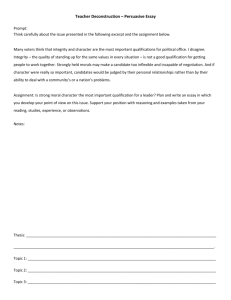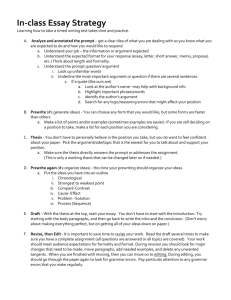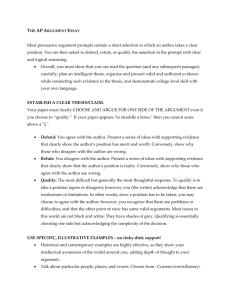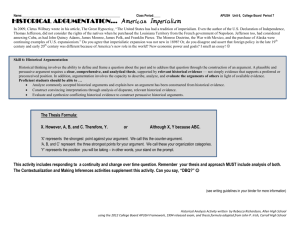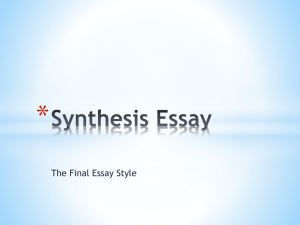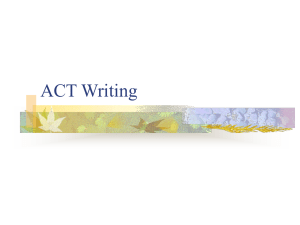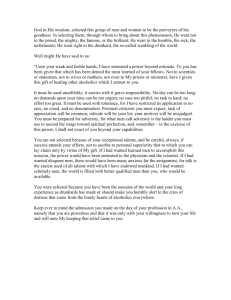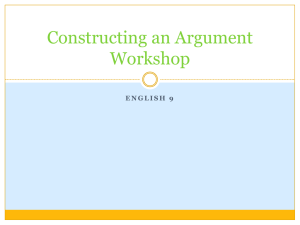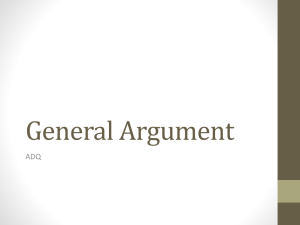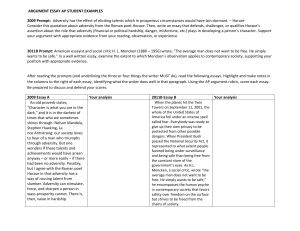How to Write the Introduction to an Argument Essay
advertisement
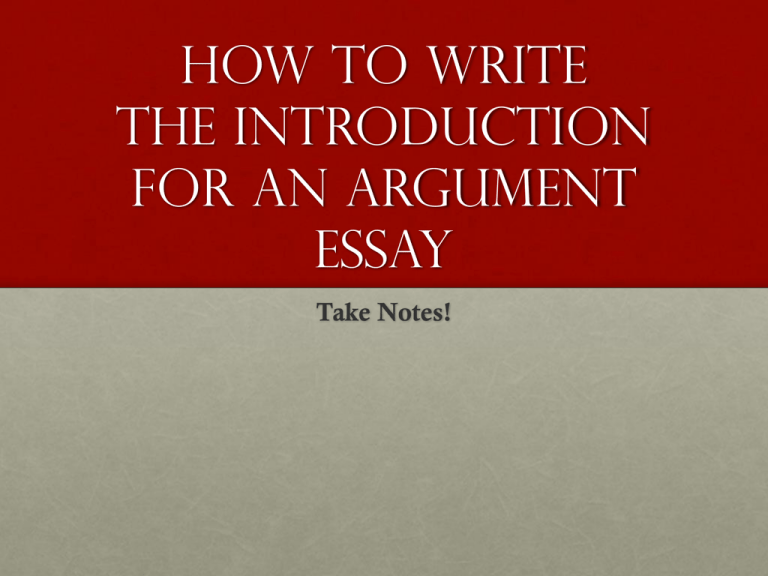
How to Write the Introduction for an Argument Essay Take Notes! Structure 1. Lead – Grab your reader’s attention. 2. Introduce the situation or context of the prompt. 3. Use a two part thesis statement. 4. Reveal your universal idea/theme. Two-Part Thesis Formula: Although [critics/scientists/experts] may say … (insert counter argument), in reality … (insert your claim/position). *You must acknowledge/mention your counter argument (the side or position you don’t agree with) in your thesis. *Your introduction and thesis must be written in third person. Example Argument Essay Writing Prompt: Should people receive a reward for charity? Two-Part Thesis Statement: Although some people expect a reward for their charitable acts, one should do benevolent things for others out of the kindness of their hearts, and the reward should be a clean conscience, not an incentive. Brainstorm Evidence First! For My Position + Against My Position - This side will contain your main points/examples (body paragraphs) in your essay. You will need one example/piece of evidence for your counter argument. Big 7 Brainstorming Categories 1. Pop Culture 2. History 3. Current Events 4. Literature Arts 5. Sports 6. Science/Technology 7. Personal Experience Argument Prompt Support, refute, or qualify the following assertion: “Adversity has the ability to elicit talents which in prosperous circumstances would have lain dormant.” -Horace 1. Paraphrase the prompt. 2. What is the universal idea or theme? 3. What is the author’s position? 4. Do you agree or disagree with this assertion? Activity 1. Find a group of three or four. 2. Make a T-chart. 3. Brainstorm evidence from the Big 7 Brainstorming Categories to support and refute this prompt. “Adversity has the ability to elicit talents which in prosperous circumstances would have lain dormant.” - Horace Small Groups Task: Write an introduction as a group: *Lead *Context *Thesis Statement Access Google Groups http://groups.google.com/group/landonenglish3?hl=en Example Introduction An inspirational writer for Reader’s Digest, William Arthur Ward, says, “Adversity causes some men to break; others to break records.” Horace also asserts that trials and opposition build character and reveal strengths in people that they did not know they possessed. Although some psychologists may claim that adversity harms people’s self esteem and prevents them from developing into welladjusted people, examples from history, literature, and personal experience reveal that adversity helps people discover and develop hidden talents that otherwise may not have been noticed or realized.
